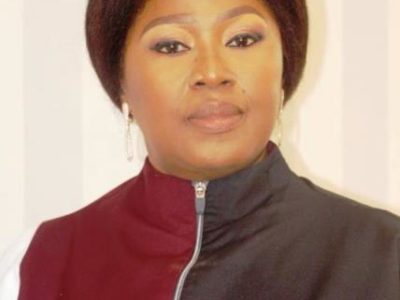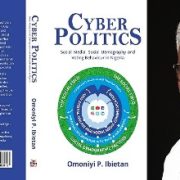2024 is poised to be an important year as more than half of the world’s population is poised to vote. Elections create clarity and regime change. They are pivotal because they signal national policy direction for industry and society, not the least being mobile telecom stakeholders.
RELATED: 2023 predictions and 2022 telecom review – Strand Consult
Following are Strand Consult’s hard thoughts on the year ahead. For some holiday mirth and an insightful summary of the challenges facing the telecom industry in 2024, listen to the Telecoms.com podcast featuring telecom legend Denis O’Brien from Digicel in conversation with editors Scott Bicheno (Telecoms.com) and Iain Morris (Light Reading.com).
Geopolitics
2024 is an election year, and more than half of the world’s population are scheduled to vote in 2024. Four critical elections will be held in the Free World: Taiwan on January 23; General elections in India in April-May; the European Parliament on 6 to 9 June; and the US Presidential election on November 5. Separately, a press release notes that a Russian presidential election will be held on 15 to 17 March, and Vladimir Putin will get a fifth term. China canceled free elections again in 2024.
There is limited policymaking in countries during election years, so the policy action is likely to be in the countries in off-election years. However, elections may slow needed action to address conflicts in Ukraine and the Middle East.
Moreover, China continues to partner with dictators, and grow more aggressive. General Secretary Xi Jinping faces limited opposition and critical press. However, many see his reign as a disaster including the mishandling of Covid, the souring economy, and the lost goodwill with other nations, particularly as XI cozies up to Russia’s Putin, North Korea’s Kim Jong Un, and Iran’s Hassan Rouhani.
There still remain mobile telecom operators in the free world which espouse democratic values and yet partner with China’s Huawei and ZTE. The operators reject the claim of security risk and dismiss or downplay the demonstrated control Xi and the party exact on China’s enterprises. The policy secure networks in US and EU has nothing to do with trade, but rather reflects the reality that China has changed fundamentally in the last decade.
2024 will also show the results of the implementation of the EU 5G security toolbox with increased attention on trusted versus non-trusted operators, not just vendors. Nations outside the EU will be inspired by the diplomatic EU approach.
Interest Rates
Rising interest rates and inflation have hit the industry hard and will make further impact in 2024. After 15 years of falling interest rates and with interest rates in many countries that made money almost free, these are new times.
When the price of money rises, so does the expectation for return on investment. Investors will want more return from the investment they have made in infrastructure (wires, fiber, towers etc). This burden falls even harder on emerging countries where the cost of capital is higher for risk premiums. In practice, there could be even less investment than before.
This means that across the board, it will be more difficult to attract new capital, either from direct investors or from investors who want to buy infrastructure businesses. The valuation of many companies will change significantly.
The rising interest rates will also mean that those companies with accumulated debt, established during a period when money has been free, will be forced to sell off and reduce their debt. The focus will be shifted from growth with borrowed money to reducing costs and debt. The tower company Cellnex is a good example of this trend.
The business case which has been the fundament of many infrastructure companies is not sustainable when interest rates are rising. This will be of great importance in 2024 for the telecom operators that have focused on splitting the company into an infrastructure and a service business.
The idea behind the splits was that infrastructure companies were traded at significantly higher multiples than telecommunications companies and with a split you could exchange earnings from a telecommunications company (10 times earnings) to earnings in an infrastructure company (25 times earnings) and that without the total companies increasing net earnings. This is what we call financial acrobatics.
Denmark’s TDC is one such case. Since the split of the company in 2019, the underlying case has developed disastrously. Customers have left the company big time. Revenues have fallen. The only tactics left for profitability are to cut cost and raise price. We do not expect 2024 will be good year for TDC’s owners ATP, PKA, PFA or Macquarie Infrastructure and Real Assets.
2024 will be a year with asset divestment and decline in infrastructure investments. This will likely have a negative impact on digitization. The era of free money is over, and only a recession in USA can bring interest rates down in the short term.
Misguided Regulation
When Strand Consult launched almost 30 years ago, “regulation” had little to no impact on the industry. There were no internet activists trolling telecom regulatory authorities. Today, however, regulation can have a huge impact for both good and ill.
A decade ago Strand Consult published the report The EU’s Broadband and Telecom policy is not working. Europe is falling further behind the US documenting how US operators invested twice as much in infrastructure as their European counterparts over a long period. That trend is ongoing. The US still invests at twice the rate of the EU; the EU is further behind, and the EU gap to close the digital divide has widened from €150 billion to €274 billion.
2024 will be another year in which the EU will publish reports showing that Europe is behind. And yet, European policymakers continue to reject solutions like in-country consolidation which could help firms improve their business case for growth and investment and could ultimately improve the dismal picture for the EU.
Meanwhile the United States, India, and many African nations have completed successful consolidations. The operating results of most telecom firms in these countries are better than those in Europe. EU policymakers accept the status quo of ever-worsening returns and a growing investment deficit.
When it comes to creating better conditions for infrastructure deployment, Europe is also far behind other parts of the world. The only exception in the EU is Denmark, where Strand Consult’s research which started 10 years ago, has made it easier and significantly cheaper to roll out infrastructure in Denmark.
The EU Parliament’s Gigabit Infrastructure Act introduced this year promises faster rollout of gigabit-capable connectivity. It is a solution that helps fixed infrastructure providers. The question remains as to how many years it takes before implementation at the local level. Strand Consult does not expect to see this the effect of this Act in 2024, or even for some years, given rising interest rates. Simply put, the EU bill is too little and about 15 years too late.
The EU’s Digital Markets Act (DMA) proposes to regulate online content and social media platforms. The big question is how to implement it in practice. It will be interesting to see whether Big Tech will censor EU policymakers. There is a similar hubris with the EU’s Artificial Intelligence Act (AI Act) and how it promises “transparency” of algorithms. It’s hard to believe that any European official has the skills to make such an assessment. As AI business models have yet to be proven, the regulation seems premature. No bureaucrat can say whether Google, Microsoft, AWS, ChatGPT, or some other entity has the better AI solution.
Chips, chips, and Chinese chips
All chips matter – whether NVIDIA’s state of the art chips for AI or workhorse memory chips. This has only been heightened by the supply chain shortages driven by Covid-19 and security challenges. Russia, Iran, North Korea and China want advanced chips used for military purposes. Free world nations have imposed restrictions on chips for certain military users; this could only work because firms in the US, Netherlands, Korea, Japan, and Taiwan have the relevant IP.
China is heavily dependent on this advanced chip technology, and indeed firms of all kinds try to work around these rules. Some companies even break them with the expectation that they won’t be caught or fined (See Applied Materials). China has tried for 40 years to get a leadership position in advanced chips with limited success. However, though size and scale, China can impact global chip supply with currency manipulation and by flooding the market with low-end products.
In 2024 China will bombard the media with propaganda saying that if they can’t get an advanced supply of chips, then they will make it themselves. This should be taken with a grain of salt. Strand Consult describes Huawei’s challenges given chip restrictions and its various workarounds and creative messaging. Huawei is diversifying its business and doing an IBM-style transformation, going from a hardware company to a software/service one. It could make Huawei less dependent on its own hardware.
Chip policy will stay salient in 2024.
OpenRAN vs. 3GPP 5G RAN
Strand Consult’s predictions about OpenRAN have been spot on, revealing the stories to be the greater part of hype rather than market value. OpenRAN revenue as a share of the mobile infrastructure market is miniscule, but OpenRAN takes an outsized share of press and policymaker attention owing to Washington policy spin and Hollywood storytelling.
The party version of OpenRAN is to break incumbent vendor lock-in, reduce costs, promote innovation, and simplify network deployment and upgrade. This approach has gained attention and support from some telecommunications industry players, standardization bodies, and regulatory authorities to enhance competition and accelerate the development of 5G and beyond. However compelling a storyline, the reality is that OpenRAN does not provide a meaningful technical and commercial alternative to existing RAN players Huawei, Ericsson, Nokia, ZTE and Samsung.
In other words, you can’t put a hodge podge of virtual elements in a 1:1 matchup for existing RAN solutions. There are a few one-off OpenRAN solutions, but these are sideshows. There are proprietary RAN solutions that can connect to different interfaces. OpenRAN has the same function as a USB cable when connecting an iPhone with a Windows PC. With the new OpenRAN specifications launched in Osaka this summer, it is equivalent to going from using a USB-A to a lightning cable to using a USB-C to a USB-C cable.
Of the 200 3GPP/5G networks deployed globally, just three could be classified as OpenRAN. Of the install base of 5G RAN base stations, OpenRAN has about 1 percent market share of the install 5G base.
2024 could see the O-RAN Alliance folded into 3GPP. Or it could be pushed to 2025. 3GPP already works with many open interfaces, and this will drive the O-RAN Alliance to dismantle itself. The key stumbling block to OpenRAN implementation is operators themselves; they don’t want more complexity in networks. There is still value to the one-stop shop, as AT&T just demonstrated with its 5-year, $14 billion deal with Ericsson.
Business models
Over the last 25 years, the mobile telecom industry has moved from selling volume-based traffic to flat rate, all you can eat models. This has been driven for a variety of reasons. However, we predict 2024 will mark a shift with more flexibility at the high and low end of the market, read high value premium service for gamers and packages with bespoke services for the budget market.
Something’s gotta give. Internet adoption has stalled with 2.6 billion people globally offline for lack of access and affordability. Interest rates are rising, and average revenue per user (ARPU) is falling. Alternatively, we could see some nations allow needed in-market consolidation.
Operators have tried and failed to launch new platforms (think Orange World, Vodafone Live, GSMA’s OneAPI). In the year 2000, there was a 3G dream to double ARPU, from €36 to €72 Euro. Today ARPU is at or below €14 in many European countries. OTT solutions like Skype and WhatApp have proven more successful. Hence Strand Consult is not optimistic for GSMA’s Open Gateway in 2024.
For a deep dive on the state the mobile operators today, read Strand Consult’s latest research note Has the iPhone improved the mobile operators’ business case? which revisits Strand Consult’s groundbreaking report.
Operators have four key challenges:
- Regulation which prevents business model innovation and competition with OTTs
- Competition with other operators
- Customer budget constraint
- Operators’ lack of creativity, innovation, product development, strategy etc.
Connectivity may be the most compelling service on this earth. Just turn off the internet to a 9-year-old boy’s iPhone. The problem is that telecommunications providers have not succeeded to monetize sufficiently the value they provide. Ironically connectivity is increasingly valuable, yet its unit price continues to fall, and consumers expect greater value at a ever falling price point.
Broadband cost recovery and fair share
2024 will likely see the reboot of the Free Ride Prevention Act in South Korea, as firms like Google’s Alphabet which devour more than a quarter of the nation’s bandwidth, refuse to come to the table to negotiate. There is also likely to be progress in the USA, India, and Brazil where proceedings are underway, among other countries. Given recent court cases proving that Big Tech pays for placement, the arguments against fair share have been demolished. Moreover, the court cases have documented systematic Big Tech strong-arming, if not abuse of market power. Expect Big Tech to be more open to dealmaking in lieu of being regulated. Check out Strand Consult’s Global Research Project for Broadband Cost Recovery, Affordability, and Fair Share for more information.
Satellite Industry: Musk vs. Bezos
2024 will see more focus on the use of the low earth orbit (LEO) satellites. The fight between Elon Musk (Starlink) and Jeff Bezos (Kuiper) overshadows the big picture. Musk’s Starlink is lightyear’s ahead of Bezos’ Kuiper and already has 5,420 satellites orbiting the Earth; Kuiper has just two satellites. Bezos and Musk share the same dream; the difference is that Musk has already delivered. Bezos has opened his first satellite burger bar. Musk owns the interstellar McDonald’s.
Starlink has first-mover advantage and some lock-in tech dependence. It has access to cheap lifting capacity to get its satellites into space and to operate ground stations. Even with the FCC’s partisan cancelling of $886 million in subsidies (which appears to be a punishment for Musk buying Twitter and not towing the progressive party line), the company is still likely to succeed as it thrives on overcoming adversity and challenge. Satellite is here to stay as a bona fide broadband technology, and 2024 will only make that clearer.
Wrap up
As some 4 billion people go to the polls in 2024, some important policy may be put on hold, and broadband shortfalls will remain. At the same time, voters have a valuable opportunity to signal a change in leadership and direction. However, many governments will promote policy and legislation to improve access to 5G and broadband.
Rising interest rates will have a negative impact on investment. Fiber will be hit harder than mobile, and emerging markets will have a tougher time than the developed world.
While we don’t expect a business model revolution, we expect many operators to increase prices for connectivity. And indeed, many nations will further their broadband cost recovery and fair share policy solutions to improve access and affordability.
We also predict management cleanup. CEOs who have not delivered will be let go. Consider Vodafone which was Europe’s most capitalized company in year 2000 with well over $300 billion; it has shrunk to $24 billion today. Its main success during this period was to divest Verizon in USA. Its multi billion investment in India was a dismal failure and was written off the balance sheet.
Despite the security and reputational risk, Vodafone continues to work closely with Huawei and uses this equipment across many countries. The company appointed a new CEO in early 2023. Strand Consult observed that Vodafone needs a “cleaner” like Harvey Keitel The Wolf in “Pulp Fiction.” Or they need Meryl Streep from the The Iron Lady, not the Meryl Streep in Mama Mia! Margherita Della Valle’s performance at Vodafone is associated with a falling share price.
Strand Consult does not expect to see results for mobile telecom shareholders driven by GSMA or ENTO. However, these organizations will likely continue to pay their top management high salaries. GSMA CEO Mats Granryd gets $2.4 million in annual salary to hold trade shows featuring increasingly Huawei and Meta while serving on the board of Swedish National TV and chairing Vattenfall AB and Coore AB.
Elections and security of national infrastructure will take center stage in 2024. China will wage a proxy war against those countries which don’t adopt its equipment and service platforms. With growing interest rates and inflation, there is little to make telecom shareholders happy in the coming year.
In 2023 Strand Consult published many research notes and reports and featured cool people on its guest blog. Strand Consult’s analysis was quoted in some 1000 news stories globally. Our work took us to all the continents except Antarctica. Our readership continues to grow. For the last 23 years, Strand Consult has made predictions for the coming year. Our archive shows that we get it right.
What we got right for 2023
You can read for yourself what we predicted for 2023. Here is what happened.
Macroeconomic Trends
While some firms and industries weathered the Covid storm and emerged stronger from the pandemic, others have yet to bounce back, and some are fatally wounded. Many national governments find themselves in perilous financial shape. This uneasy geopolitical reality affects the mobile telecom industry, as rising interest rates depress returns on capital and investors’ willingness to invest in infrastructure.
The world is financially vulnerable, and security is a growing concern. Doing business in countries with authoritarian governments poses reputational risks, and many firms are moving to de-risk and de-leverage these business relationships. Some operators, having put their eggs into the Huawei and ZTE baskets, must explain to customers and national governments why they reject trusted vendors. Meanwhile other operators which have opted out of risky vendor contracts strengthen trust. These smart mobile operators can say, “Maybe we can’t offer you a better price, but we can offer you a clean network with reduced risk of Chinese government intrusion.” This message resonates with many policymakers, customers, and shareholders.
Spectrum and 5G
While we can fault the Chinese government for its authoritarian ways, it deserves credit for allocating the right mid-band spectrum frequencies for 5G. With ample frequencies in 2.6-6 GHz range, China offers its equipment, device, and application providers a broad and seamless testbed for 5G innovation and export. While a handful of untrusted equipment vendors face some restriction abroad, Chinese apps are killing it when it comes to TikTok, Temu, Shein, and CapCut. US internet companies may enjoy dominance in the developed world today, but emerging countries are up for grabs when it comes to many internet products and services. First-time internet users are a blank slate, and there is no loyalty for a US vs. Chinese smartphone with pre-loaded apps and systems.
Not keeping pace, the US Congress let the Federal Communications Commission (FCC) auction authority to lapse and failed to restore it. The US President has done no better. A long-awaited spectrum strategy from the National Telecommunication Information Administration (NTIA) offered zero spectrum for the pipeline. This adds pressure to the growing 5G industry in US which surpassed South Korea in 2023 for the highest percentage of its population adopting this next generation network. Fixed wireless access (FWA) has also enjoyed a steady growth, and the US also leads globally in this disruptive technology.
While the rest of the world has used the World Radio Conference to make more mid-band spectrum available for 5G, US authorities are stuck in the mud. Consider the opportunity cost to the USA for failing to segment the 3.3 GHz and below for 5G. That spectrum if deployed would drive $100 billion or more in wages for 5G-enabled jobs and broadband-enabled services for work, health, and school.
The Department of Defense runs the entire Air National Guard, a military reserve force of 107,414 aviators and 1080 aircraft for $100 billion. These are the people and assets that would be deputized to protect America in the event of an attack over US airspace. However, that 3.3 GHz spectrum is not critical for defense as the military can use other spectrum with better optimization, whereas 5G works best in the mid-band. Moreover, much of the military equipment is obsolete and already slated for replacement. The remaining equipment, with minor adjustments through standard technologies like tuning, compression, and frequency coordination, will operate on the bands for which it was intended.
$100 billion equals about 2.5 percent of the total DoD budget, making the economic value of military operations in 3.3 MHz band de minimis. The US failure to modernize federal spectrum puts the country in military and economic peril. Modern power reflects capability to dominate in mobile ecosystems, not just nuclear weapons. Sadly, the Pentagon lost its spectrum edge by waging wars with non-peers for two decades. Instead of upgrading to spectrally-efficient tools on the appropriate frequency, it is entrenched with bloated legacy systems on the mid-band beachfront with 12 times the spectrum that’s available for for 5G. US Armed Forces employ 1.4 million people globally for defense. US mobile operators serve 340 million Americans in the United States and abroad. US spectrum dysfunction has become a security vulnerability.
Broadband cost recovery and fair share
Strand Consult tracks developments across countries on the modernization of their broadband policies though its Global Research Project for Broadband Cost Recovery, Affordability, and Fair Share. We closely followed the development of the Netflix v. SKB litigation in South Korea. It was clear from the first round that Netflix’s arguments that it had no obligation to pay or negotiate for the use of another’s network was a losing strategy. Netflix settled its appeal rather than risk a second loss. In South Korea, the victory of SKB against global behemoth Netflix was seen as a David and Goliath Battle. The developments over 10 courtroom hearings show that Netflix folded in the face of the court’s reasoning, public opinion, and pressure from South Korea’s National Assembly.
Another milestone was the US Senate bill Lowering Broadband Cost for Consumers Act of 2023, groundbreaking bipartisan legislation proposing the first meaningful reform of the $9 billion Universal Service Fund (USF) in a generation by assessing large “edge providers” or digital enterprises which account for more than 3 percent of total US annual internet traffic and earn more than $5 billion in annual US revenue. This model could also provide ongoing support for the wildly popular and meaningful Affordable Connectivity Program (ACP) used by more than 22 million households as of this writing. US Big Tech firms Alphabet, Amazon, Apple, Meta, Microsoft, Netflix, and others earn collectively thousands of dollars per each ACP subscriber per year yet, unlike telecom providers, contribute nothing to federal subsidy programs. There is a growing policy consensus that this inequality much be resolved, particularly as the free ride can be documented. The flow of traffic and revenue disproptionately benefits Big Tech while they do not contribute financially to the regulated broadband ecosystem.
Without a coalition of relevant stakeholders or public data demonstrating the actual traffic and financial shortfalls, the European telecom industry failed on their fair share effort and withered in the face of Big Tech which has long funded consultancies, academics, and activists to feed their talking points to policymakers. Outside Europe, however, operators big and small are more focused, work together across broadband technologies and taking the discussion directly with policymakers.
Metaverse: Second Life 2.0?
The media hype about the Metaverse fizzled in 2023. Billed as the “the future of digital connection…moving beyond 2D screens and into immersive experiences in the metaverse, helping create the next evolution of social technology,” the Metaverse has little to show for a $42 billion investment. Users don’t think they need it, and operators are reluctant to invest in 5G if they can’t recover their deployment costs.
Net neutrality
The UK’s Ofcom followed through on long-needed modernization of its net neutrality rules, allowing operators to offer premium and free services and as well as more flexibility to manage networks efficiently. Ofcom said eloquently what everybody knows: net neutrality works for Big Tech, but not for consumers or market entrants. The agency notes that the policy depresses innovation in the broadband sector.
Sadly 8 years of empirical evidence from Europe and USA was ignored by a partly-line majority vote at the FCC, resurrecting the zombie policy for the 9th time. With the leading apps in the USA now coming from China, it is no longer credible to say that an “open internet” drives innovation, and hence that argument is buried in the FCC rulemaking. Instead, the agency invented a spurious notion that it now needs telephone monopoly regulation to improve its national security and public safety function. Court challenges are certain, and Congress could also reverse the FCC’s efforts. For more information, see Strand Consult’s library on net neutrality which includes an assessment of the policy over the last decade across 50 countries.
Green energy, ESG, OMG
2023 was likely peak-ESG hype. Hundreds of thousands of stories emerged about the topic, so much so that a cottage industry emerged in calling out “greenwashing.” Policymakers love to talk about the green transition and believe that global targets will save the day rather than real world implementation of technology by firms which voluntarily invest, build, and run green solutions. After all, the foundation of the green society is access to digital infrastructure, which makes it possible to change energy, production and consumption from inefficient to intelligent solutions. Purchasing power agreements (PPAs) seem to be the way forward.































